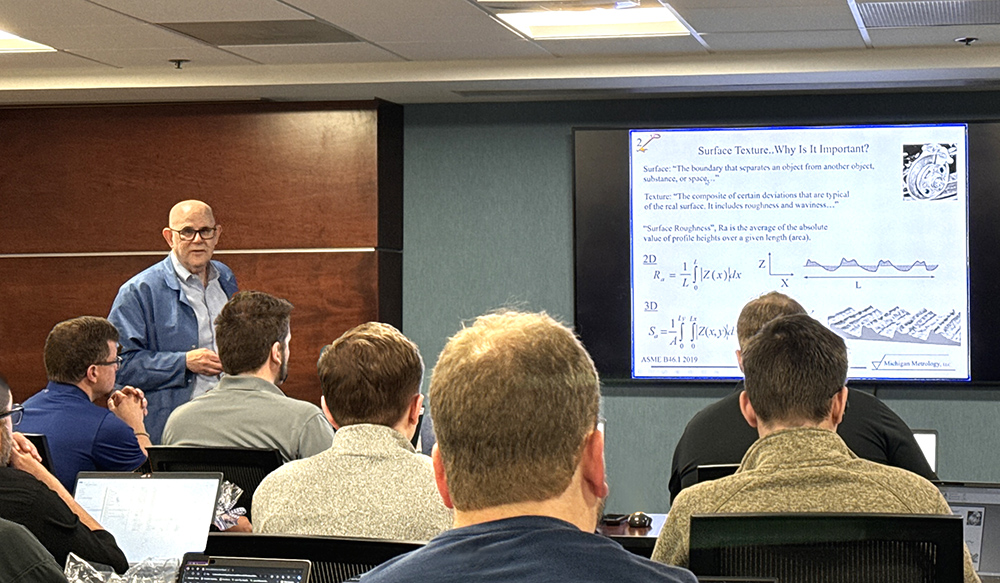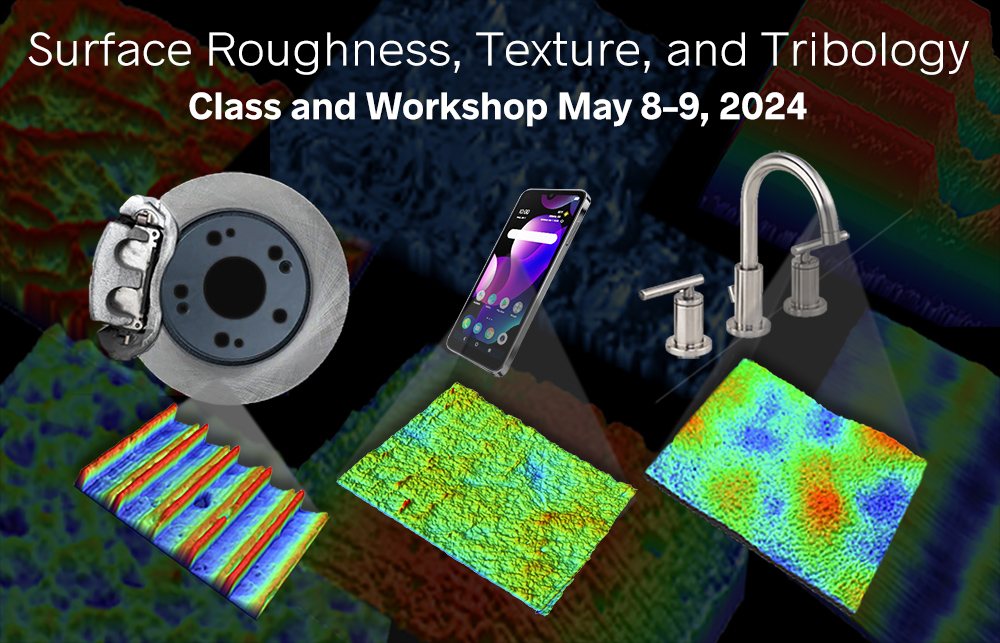Surface Roughness, Texture, and Tribology Classes
“This was one of the best classes I have ever taken. It really helped me understand surface texture and simply it made me a better inspector. It helped me see the bigger picture. I guarantee you’re going to want to learn more.”
Agustin Guzmán, Inspector at SpaceX
Next Class: Spring 2026
Please contact us if you’d like us to inform you about upcoming classes.
Online classes also available! See below
Are you interested in learning about surface texture, wear, friction, sealing, surface energy, paint appearance, and more?
Dr. Don Cohen, one of the country’s foremost experts in surface roughness, presents the Surface Roughness, Texture and Tribology short courses, covering a broad range of topics on surface texture and its impact on functionality. These metrology training courses are designed for scientists, engineers, and technicians working in the fields of automotive, aerospace, materials, polymers, and others. No prior study is required.
In-Person Classes
“I highly recommend this course!” – Ivan Yermolenko
Dr. Cohen’s two-day Surface Roughness, Texture & Tribology course is a deep dive into surface roughness and applications for controlling friction, wear, sealing, fit, finish, coating appearance, and many other topics. Light breakfast and lunch will be provided each day.
SYLLABUS
• Introduction to surface texture …why is it important?
• Instruments for surface roughness measurement (stylus, optical, etc.)
• Filtering (roughness vs. waviness, cutoffs, etc.)
• Parameters for surface texture analysis
• Wear (scoring, scuffing, galling, wear volume, wear depth…)
• Friction relating surface texture to dry/lubricated/rolling friction and NVH
• Sealing (gaskets, O-rings, lip seals, piston rings…)
• Surface energy/surface texture
• Correlation between non-contact and contacting systems
• Data analysis (T-Test, F-Test, principle components, regression…)
• Specifying surface texture (symbology)
• Surface metrology strategy.
The class cost is $950, which includes all presentation material in PDF form (provided via email prior to the class).
Depending on the time and interest, certain presentation modules may be eliminated or substituted.
“It was not until I found your videos that so many unanswered questions were answered. The videos you created that teach surface texture and tribology have been a tremendous help!” — Michael Bower, Analytical Chemist
Please contact us if you’d like us to inform you about upcoming live classes, and check out our online classes below.
Customized Classes for your Company

The Surface Roughness, Texture and Tribology short course can be tailored to your company’s specific needs and interests. A custom class can include all or portions of the material in the syllabus above.
Dr. Don Cohen, one of the country’s foremost experts in surface roughness, has been leading customized training sessions in surface roughness, friction, wear, and more for nearly two decades. His courses cover a broad range of topics on surface texture and how it impacts functionality.
Both both in-person and virtual options are available, with one-day, two-day, or customized class schedules.
Contact Us to learn more about customized surface roughness training, and to get a quote for a custom class.
Online Classes

The FULL Surface Roughness, Texture, and Tribology Short Course online
Can’t attend the Surface Roughness, Texture, and Tribology class in person? The full course (two days of material) is also available online through udemy.com. It’s an affordable way to learn surface texture and tribology, at your own pace.
About Don Cohen, Instructor
For more than thirty years, Dr. Donald Cohen has been measuring 3D surface roughness and analyzing the result to solve problems related to “squeaks, leaks, friction, wear, appearance, adhesion, and other issues.” Dr. Cohen formed Michigan Metrology in 1994 to provide 3D Surface MicroTexture Measurement and Analysis, serving industries including automotive, aerospace, medical devices, materials, and many others.
Throughout his career, Dr. Cohen has worked to advance the understanding and application of surface texture analysis, through his involvement in standards committees, industry groups, and other activities. His annual classes, surface texture parameters glossary, and surface-related articles and videos have helped many quality and manufacturing professionals to understand the concepts of surface texture and friction, and to apply them in their work and research.
Dr. Cohen has developed this class over the past 20 years having presented the material at numerous client locations as part of his training and consulting activities. The class is offered to a general audience in the Livonia, MI area, typically once a year.
Dr. Cohen has an undergraduate degree in Physics from the University of Michigan, Dearborn, and graduate degrees in Physics and Optical Sciences from the University of Arizona.
